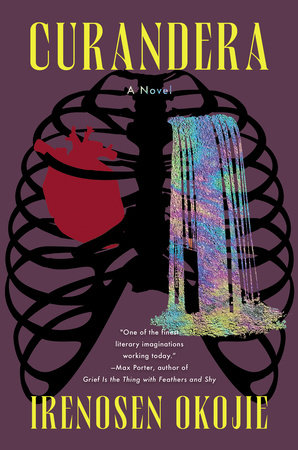What do you think?
Rate this book


320 pages, Hardcover
First published March 16, 2023
I feel it’s in my writing DNA, by that I mean, I can trace it back to those stories I was told as a kid in Benin which were often fantastical so I carried that inside me. It adds other layers and dimensions to the work. It allows me to stretch the boundaries of form and language. I’m curious about in between spaces that appear indefinable, you know those spaces where you never really fully comprehend what you’re experiencing but you’re compelled by it, you’re intrigued to keep wanting to know it. It does that for me. If I’m curious and excited then that reflects in the writing.